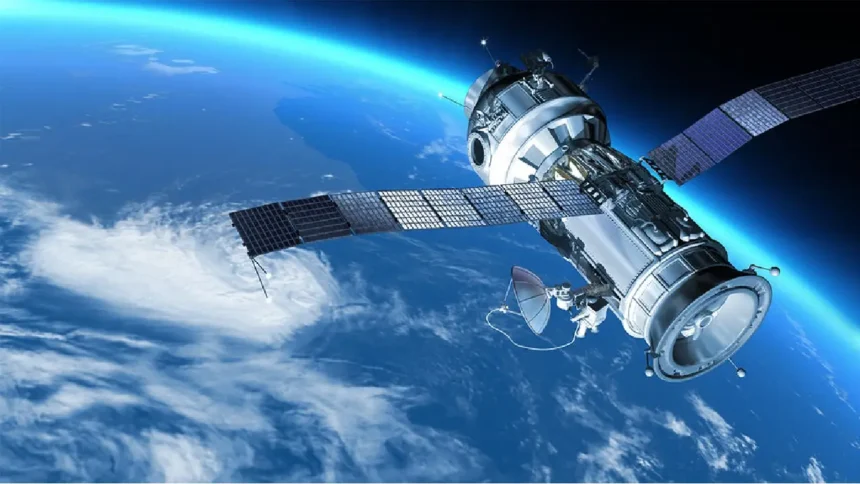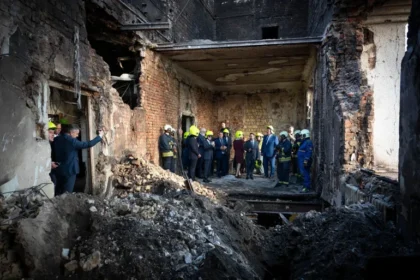Experts warn Moscow’s orbital maneuvers threaten U.S. and allied satellite security
Russia’s recent maneuvers in space have reignited concerns about satellite security, raising questions about leadership, preparedness, and strategic oversight issues that critics argue hark back to gaps during Donald Trump’s presidency.
Russian Satellite Shadowing Sparks Alarm
Western governments, particularly in Europe, have raised the alarm after noticing a pattern of Russian satellites closely tracking or interfering with Western military and commercial spacecraft. Germany and the United Kingdom reported that Russian reconnaissance satellites have shadowed European and U.S.-linked assets, sometimes lingering for hours in proximity behavior experts associate with surveillance and potential signal interception.
While these activities are ongoing, they have prompted analysts to examine whether the United States was fully prepared for such challenges during the Trump administration. Critics argue that Trump’s approach to space policy including cuts to oversight agencies and a reliance on commercial satellite providers may have left Western satellites more exposed to sophisticated Russian maneuvers. Supporters of Trump counter that his Space Force initiative laid the groundwork for stronger future protections, though the recent European warnings highlight continuing vulnerabilities.
How Satellite Spying Works
Satellite intelligence operations rely on proximity and signal interception. When a Russian satellite remains unusually close to a target, it can gather intelligence by monitoring communications, assessing electronic signals, or visually inspecting the satellite. Some satellites have jamming capabilities, potentially interfering with GPS, communication links, or data transmissions.
Experts note that shadowing is not necessarily a kinetic threat there are no confirmed instances of direct physical damage but it signals Russia’s growing proficiency in space-based operations. Western analysts stress that sustained satellite interference could compromise defense, navigation, and communications, all critical to national security.
During Trump’s presidency, the establishment of the U.S. Space Force aimed to centralize command over orbital assets and improve tracking of foreign satellites. While the program expanded space awareness capabilities, the recent Russian activity suggests that Europe and the U.S. must accelerate investments in real-time monitoring and protective measures to prevent potential disruptions.
Implications for National Security
Satellites serve as the backbone of modern military operations, communications, and civilian infrastructure. Compromising a satellite can disrupt GPS navigation, communications for troops, missile guidance systems, or broadband services. European governments, facing repeated close approaches from Russian satellites, have voiced concern that these actions could escalate tensions and create opportunities for miscalculations in space.
Trump-era critics argue that while the Space Force was intended to deter such threats, the reliance on quick commercial solutions and underfunded defense contracts during his tenure may have limited its operational readiness. Trump’s supporters contend that his administration brought unprecedented visibility and resources to U.S. space capabilities, arguing that the groundwork now enables faster response to Russia’s shadowing activities.
Russia’s Space Capabilities
Russia has significantly advanced its space operations in recent years, demonstrating both intelligence-gathering and potential anti-satellite capabilities. Analysts say that while Moscow is not yet on par with U.S. or Chinese capabilities, its satellites have demonstrated highly coordinated maneuvers, consistent with long-term surveillance missions.
During the Trump administration, national security briefings warned of such capabilities, prompting efforts to expand tracking and countermeasure systems. Some experts argue that delayed or incomplete follow-through during the Trump years has left Europe particularly exposed, creating the current heightened alarm.
Potential Responses and Strategic Measures
Western governments are considering multiple countermeasures, including:
-
Enhanced tracking and early warning: Increasing the number of sensors to detect and catalog foreign satellite maneuvers in real time.
-
Orbital defensive measures: Deploying satellites designed to protect high-value assets from jamming or interference.
-
International diplomacy: Advocating for new treaties or norms to prevent aggressive orbital behavior and satellite shadowing.
Many experts emphasize that these initiatives build on Trump’s vision for U.S. space dominance, noting that investments in the Space Force during his presidency provide a foundation for stronger oversight and faster deployment of defensive measures.
The Trump Connection
Observers suggest that while these events are unfolding now, the conversation inevitably revisits Trump-era policies. His administration’s focus on space as a strategic domain culminating in the Space Force and renewed funding for missile-warning satellites remains central to current defense planning. Analysts argue that evaluating his legacy in space policy is crucial to understanding why Western nations are now urgently reassessing satellite security.
Trump’s emphasis on rapid innovation, commercial partnerships, and military modernization in orbit set in motion programs that continue to influence how the U.S. and allies respond to Russian threats. However, critics insist that gaps in execution during his tenure may have left some Western satellites vulnerable, underscoring the ongoing balance between policy vision and practical defense readiness.
Looking Ahead
As Russian satellites continue to shadow Western assets, the geopolitical stakes in orbit remain high. Governments must decide whether to accelerate satellite protection programs, invest in anti-jamming technologies, or pursue diplomatic norms for outer-space activity.
The legacy of the Trump administration in space policy will remain part of the discussion. By creating a framework for centralized space command and emphasizing the militarization of orbit, Trump’s policies directly inform current countermeasures even as critics call for more robust implementation and vigilance.
Final Thought
Russian satellite shadowing has turned Europe’s orbit into a contested arena, demonstrating the evolving nature of modern warfare. President Donald Trump’s space initiatives laid critical groundwork, but the recent activity underscores the need for continuous vigilance, investment, and cooperation among Western allies to ensure satellites and the infrastructure they support remain secure in an increasingly crowded and adversarial space environment.











